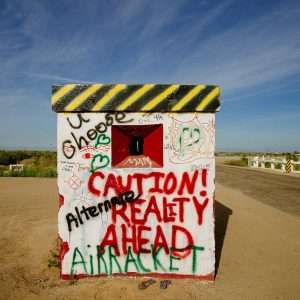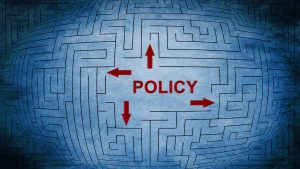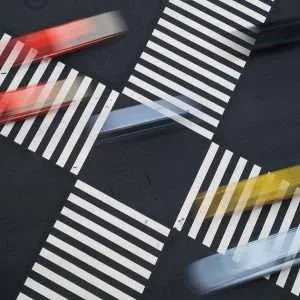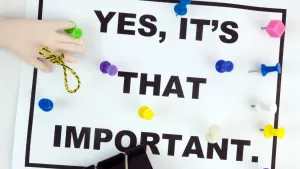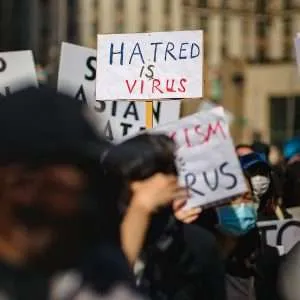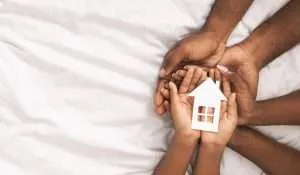Editorial Note:
This article applying the sociological imagination to COVID-19 is being published on behalf of Applied Worldwide’s 2021 student essay competition. Students were prompted to respond to the question, “Why is sociology important?” We awarded 17 finalists from all over the world, and published those essays over the course of a several weeks.
This essay was written by Kristine Para, a student at MacEwan University in Canada. This essay received a second place award. We had a really great turnout and would like to thank everyone who submitted an essay. We received a wide variety of creative interpretations and responses, so browse our essay directory!
Kristine Para on the Sociological Imagination and COVID-19
Sociology is important for a number of reasons, but the extent that it studies social interactions is unmatched. Unlike other social sciences, this discipline uses what academics in the field call “the sociological imagination.” I think of it as a special tool to help foster our insight. Precisely, everything that happens in society from a macro to micro scale holds a multitude of deeper meanings, but very seldom do people take the time to genuinely dig into these matters.
This type of imagination turns even the most mundane social phenomenon into quite intricate conversations. However, the rewarding part comes with the fact that sociology is more than just investigating and disseminating theories. Not only do we gain a deeper understanding of these exchanges, but the sociological imagination encourages us to deliberately act on the ideas that come about in our discussions.
As Howard S. Becker once said, “good sociology is sociological work that produces meaningful descriptions of organizations and events, valid explanations of how they come about and persist, and realistic proposals for their improvement or removal.” Sociology is necessary because it provides social problems with a platform for recognition and reform.
Applying the Sociological Imagination to COVID-19
To put these claims into perspective, let us consider the context of the ever-present COVID-19 pandemic. There are a lot of social interactions and social problems that come about when we think about the circumstances that people are faced with. On one end, there is the hostile, never-ending physical and emotional toll on overworked health-care workers. There are sick people who are currently battling the virus, and a number of people who have lost their lives to it.
There are also friends and family who are mourning the loss of their loved ones, and people who are suffering in silence with the current state of their mental health. In between all of the despair and frustration, we can see why people would want a scapegoat for the entire situation. Doing so takes the weight off of people’s shoulders and it helps them cope with their fate. Notably, we have been doing this as a natural response.
Think of the younger children who tend to blame their siblings for petty fights because it makes them feel better knowing that they were never responsible for the trouble. Although, people eventually grow up and (hopefully) learn that it takes two to create conflict. I say this because the spread of the COVID-19 virus is a collective fault, and yet there are people who persistently racialize its occurrence.
Anti-Asian Hate Crimes in North America During COVID-19
The social problem that I believe deserves a considerable platform is the overwhelming rate of Anti-Asian hate crimes in North America. Between 2019 and 2020, reports show that hate crimes towards the Asian community have risen 150% in several U.S. states and over 700% in Vancouver, B.C. (Yam, 2021; Takeuchi, 2021). Understandably, people have a harder time trying to empathize with statistics, and it is also more difficult to produce legitimate proposals to address the issue when that is the case.
In the context of sociology, we are meant to discuss the actual social interactions, how they come about, and their implications on society as a whole. Thus, my aim for this discussion is three-fold. Represented by those stark numbers are our Asian elders who are relentlessly spat on, shoved, sucker punched, and killed in the streets (Peiser, 2021).
These attacks were completely unprovoked, but even if the opposite were true, there is no morally justifiable reason to treat other members of society that way. So, why does it happen? Where does the motivation to commit these hate crimes come from? What do these injustices entail? According to the sociological imagination, the answers are endless.
Sociological Imagination and Anti-Asian Hate Crimes
We can start with the way that the Asian community has been portrayed during the pandemic. As seen in the media, people have referred to the virus as the “Chinese Virus”, the “Wuhan Virus”, or the “Kung-Flu.” While the World Health Organization (2020) verified that the COVID-19 variant came from Wuhan, China, discussing the virus in terms of its originating geographic location—let alone with racial slurs—is highly problematic.
Not only does it emphasize a negative narrative surrounding that specific place, but it gives the general public all the more reason to promote racialization. For instance, when Donald Trump publicly used those terms, he single-handedly endorsed greater fear, paranoia, and hatred towards the Asian community (Yam, 2020). Racial stereotypes about Asian people that existed prior to the start of the pandemic are also equally to blame for their victimization.
The media and pop-culture have been notoriously responsible for spreading and reinforcing racist comments about how Asian cultures enjoy eating dogs or “exotic” animals (Reny & Barreto, 2020 p. 1). It is because of this environment that toxic ideas are dangerously taught and ingrained in younger generations who grow up and continue to believe it. Likewise, when it was speculated online that the COVID-19 virus came from either bats or pangolins in Wuhan, people were already primed to react with racial biases.
COVID-19 and Robert Merton’s Strain Theory
We can also consider this phenomenon through sociological theories like Robert Merton’s strain theory, where people commit crimes as a result of lacking or being pressured by society’s expectations (Symbaluk & Bereska, 2016, p. 251). Having a family, an education, a stable financial income, or a safe place to live are a few examples. When we study these social institutions in sociology, we learn to recognize the connections between them and how they affect people’s values and behaviors.
Unfortunately, the pandemic has changed some of those circumstances for many. With the sociological imagination, we can apply the strain theory to the issue of Anti-Asian hate crimes—but take it with a grain of salt. While it may be the case that perpetrators feel frustrated by their situation and they resort to violence to address those feelings, it is still not justified.
Displacing one’s anger onto others rather than the system that caused it is largely a result of miseducation. Though, note that acknowledging this possibility does not condone the behavior. Instead, it gives us the opportunity to understand the phenomenon at a deeper level so that we can advocate for the necessary changes.
Concluding Thoughts on the Sociological Imagination, COVID-19, and Anti-Asian Hate Crimes
Overall, sociology gives us a platform to discuss all kinds of social issues. What I love most about it is the way that we can think about issues between interpersonal interactions to the broader social institutions. Furthermore, sociology does not just stop at the “what” of the situation.
In the context of Anti-Asian hate crimes, we should also consider what kinds of policies could help mitigate the violence that happens in the streets. Maybe we can target the way Asian communities are portrayed in the media, or possibly provide support for other people who are also struggling during these times. Like Becker once said, it is always about how we can create “realistic proposals” to address the social issues that we learn about.
Sociology is never about questioning or examining one single entity for the problems that exist, which is helpful because conflict always involves more than one perspective. In the context of Anti-Asian hate crimes, we must collectively work towards dismantling systemic racism caused by White Supremacy.
References
Peiser, J. (2021, March 19). Asian woman, 75, beats back man who punched her in San Francisco: ‘I am amazed by her bravery’. The Washington Post. https://www.washingtonpost.com/nation/2021/03/19/san-francisco-asian-attackarrest/
Reny, T. T., & Barreto, M. A. (2020). Xenophobia in the time of pandemic: othering, anti-Asian attitudes, and COVID-19. Politics, Groups, and Identities. https://doi.org/10.1080/21565503.2020.1769693
Symbaluk, D. G. & Bereska, T. M. (2016). Sociology in Action. Toronto, ON: Nelson Education
Takeuchi, C. (2021, February 18). COVID-19: Anti-Asian hate crimes in Vancouver skyrocketed by over 700 percent in 2020. The Georgia Straight. https://www.straight.com/covid-19-
pandemic/anti-asian-hate-crimes-in-vancouver-skyrocketed-by-over-700-percent-in-2020
World Health Organization. (2020, January 10). Coronavirus. Retrieved March 18, 2021, from https://www.who.int/health-topics/coronavirus#tab=tab_1
Yam, K. (2020, June 22). Trump can’t claim ‘Kung flu’ doesn’t affect Asian Americans in this climate, experts say. NBC News. https://www.nbcnews.com/news/asian-america/trumpcant-claim-kung-flu-doesn-t-affect-asian-n1231812
Yam, K. (2021, March 9). Anti-Asian hate crimes increased by nearly 150% in 2020, mostly in N.Y. and L.A., new report says. NBC News. https://www.nbcnews.com/news/asianamerica/anti-asian-hate-crimes-increased-nearly-150-2020-mostly-n-n1260264


